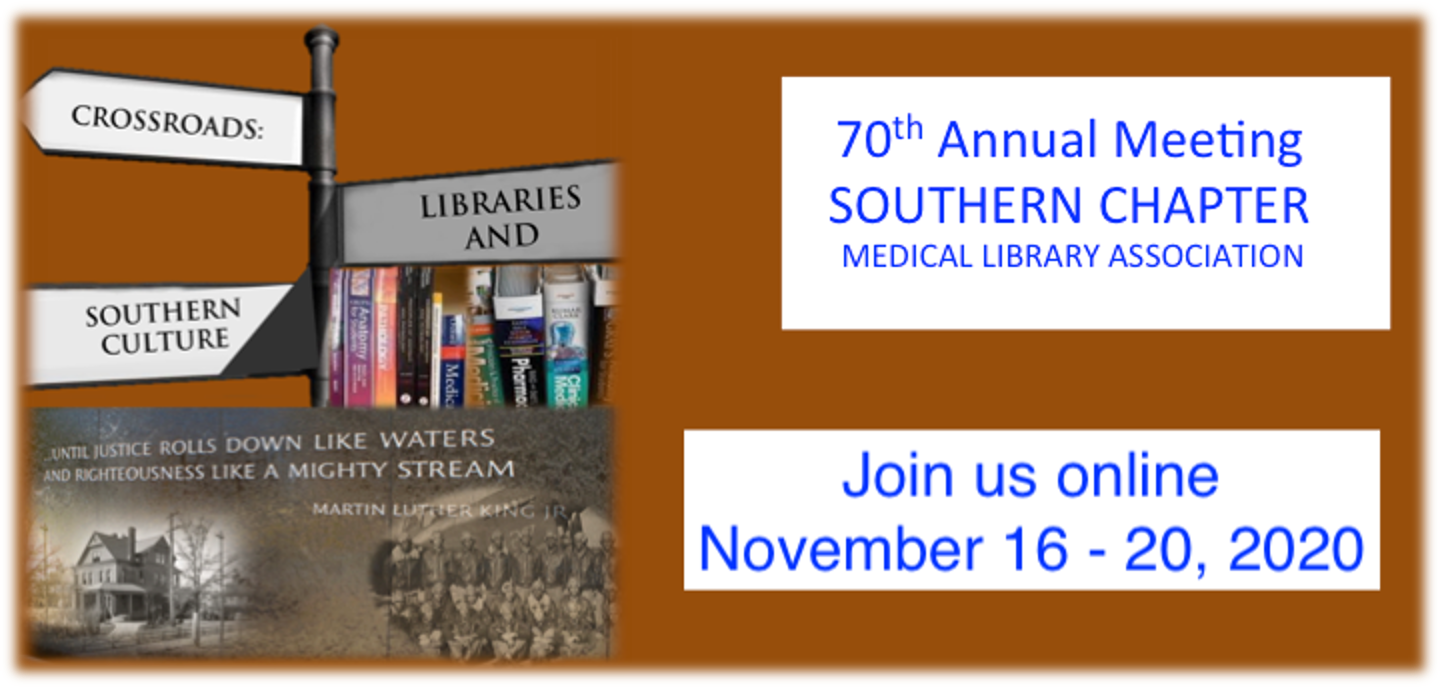Start Date
17-11-2020 2:26 PM
End Date
17-11-2020 2:40 PM
Type of Work
Presentation
Description
Objective To provide continuity in an evidence-based dental course the librarian led students to convert the course director’s PICO (Population, Intervention, Comparison, Outcome) and Clinical Question examples derived from PubMed abstracts to viable PubMed search strategies.
Methods With student participation, a new course director diagrammed PICO elements from eight PubMed abstracts with different research methodologies to construct Clinical Questions. During the next class, the librarian led students to build a search strategies from six Clinical Question examples with Medical Subject Headings (MeSH) and keywords. Students viewed the accuracy and reliability of PubMed’s Automatic Term Mapping in Search Details, how to apply Boolean operators from the Search History, how to find the most appropriate MeSH in the MeSH Database and the MeSH Browser, and finding full-text documents. Students located MeSH listed in MEDLINE records and how to leverage Similar Articles and Cited By features. Students learned how to stratify the concepts in the Clinical Question by importance.
Results Deriving PICO from PubMed abstracts and building a Clinical Question is a practical method to generate PICO and Clinical Question experience in novice evidence-based medicine students without clinical experience. Students could see real-world examples of some concepts neatly mapping to MeSH and keyword synonyms while some other concepts require more investigation to convert to MeSH and keywords.
Conclusions The librarian appreciated the simplicity of building PICO and Clinical Questions from PubMed abstract text and more examples could be presented to students than in previous years. Students had to push beyond blind trust in Automatic Term Mapping to create better search strategies. The ranking of concepts allow novice learners to construct search strategies that overcome incorrect assignment of concepts to inappropriate PICO elements.
How Generating PICO and Clinical Questions from PubMed Abstracts Challenges Instruction of PubMed Search Strategies to First-Year Dental Students
Objective To provide continuity in an evidence-based dental course the librarian led students to convert the course director’s PICO (Population, Intervention, Comparison, Outcome) and Clinical Question examples derived from PubMed abstracts to viable PubMed search strategies.
Methods With student participation, a new course director diagrammed PICO elements from eight PubMed abstracts with different research methodologies to construct Clinical Questions. During the next class, the librarian led students to build a search strategies from six Clinical Question examples with Medical Subject Headings (MeSH) and keywords. Students viewed the accuracy and reliability of PubMed’s Automatic Term Mapping in Search Details, how to apply Boolean operators from the Search History, how to find the most appropriate MeSH in the MeSH Database and the MeSH Browser, and finding full-text documents. Students located MeSH listed in MEDLINE records and how to leverage Similar Articles and Cited By features. Students learned how to stratify the concepts in the Clinical Question by importance.
Results Deriving PICO from PubMed abstracts and building a Clinical Question is a practical method to generate PICO and Clinical Question experience in novice evidence-based medicine students without clinical experience. Students could see real-world examples of some concepts neatly mapping to MeSH and keyword synonyms while some other concepts require more investigation to convert to MeSH and keywords.
Conclusions The librarian appreciated the simplicity of building PICO and Clinical Questions from PubMed abstract text and more examples could be presented to students than in previous years. Students had to push beyond blind trust in Automatic Term Mapping to create better search strategies. The ranking of concepts allow novice learners to construct search strategies that overcome incorrect assignment of concepts to inappropriate PICO elements.


